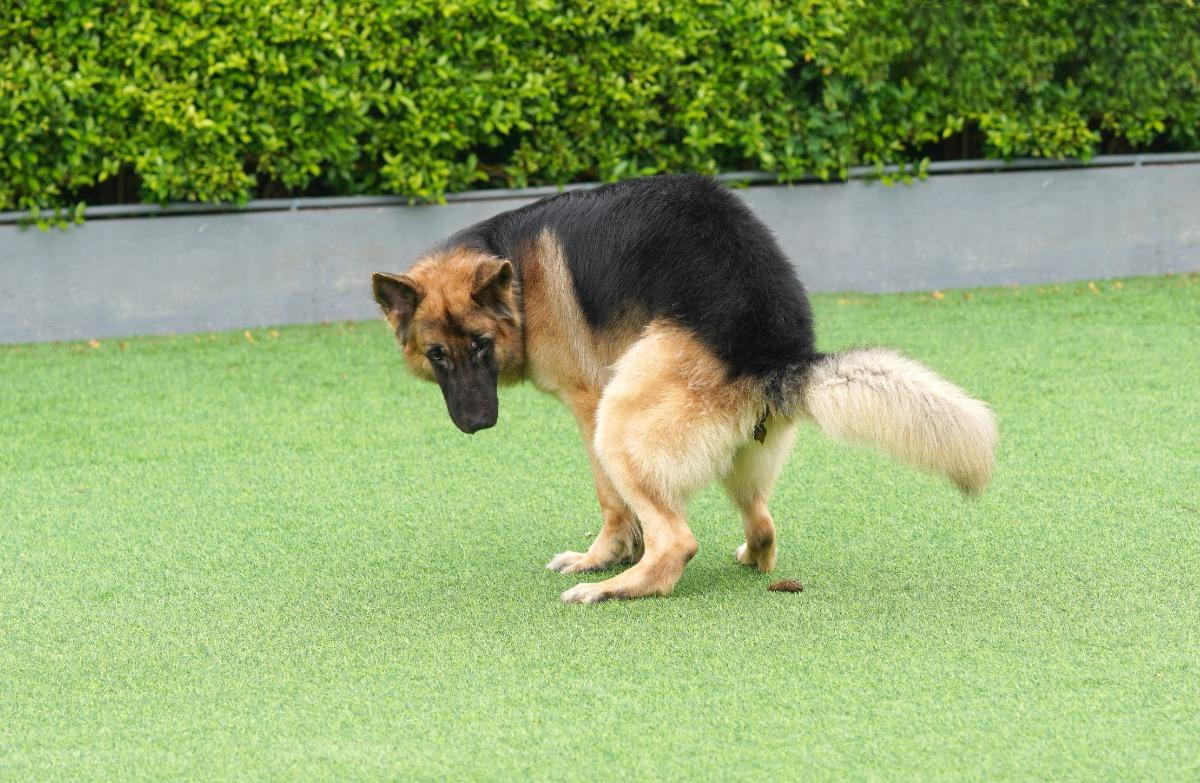
As a dog owner, you're probably all too familiar with picking up dog poop. But have you ever considered what Fido's feces might be saying about his health? Our veterinarians at Clay-Chalkville Animal Clinic in Pinson say that paying attention to your dog’s poop provides important clues about your four-legged friend’s well-being.
The Ideal Dog Poop
When your dog is healthy, his poop should have a consistent texture and brown color. The ideal stool is firm but not rock hard, moist but not diarrhea-like, and easy to pick up. Your dog should poop once or twice per day. It should be well-digested, without visible pieces of food, and not have a terribly foul odor. Overall, it should be relatively neat and tidy if a dog is digesting food properly.
What Diarrhea Could Mean
Frequent loose, watery stools could indicate a minor stomach bug or something more serious like inflammatory bowel disease. Diarrhea can also result from abrupt diet changes or eating garbage. Contact our vet clinic if diarrhea lasts over 24 hours, contains blood or mucus, or is accompanied by vomiting, appetite loss, or lethargy. Diarrhea leads to dehydration, so prompt veterinary attention is crucial.
Constipation Causes
When a dog is constipated, they will strain and pass small, hard stools. Constipation might arise from not eating enough fiber, lack of exercise, or a gastrointestinal obstruction. Some medications like diuretics and anti-nausea drugs also cause constipation as a side effect. Nerve injuries, enlarged prostate, and certain cancers can prevent a dog from fully evacuating their bowels. If your dog goes longer than 48 hours without pooping or is straining painfully, a vet visit is needed. Severe constipation can cut off blood flow or tear the intestines.
What Unusual Colors Mean
Normal dog poop should be different shades of brown, indicating your pet is healthy and receiving proper nutrition. If you see red or black, it could indicate bleeding in the GI tract from conditions like ulcers, inflammatory bowel disease, or malabsorption issues. Gray or pale yellow stools point to a liver or pancreas problem hindering bile production. Bright yellow poop may stem from eating too much grass or taking certain antibiotics. Contact our veterinarians at Clay-Chalkville Animal Clinic if your dog’s poop suddenly changes color, which demands further veterinary investigation.
Are You Looking For an Animal Hospital Near You?
Monitoring your dog’s pooping patterns and stool quality provides important health insights. Contact Clay-Chalkville Animal Clinic in Pinson for all your pet’s veterinary needs, from routine exams and vaccinations to diagnosing issues signaled by poop problems. We’re here to help keep your furry friend happy and healthy.
